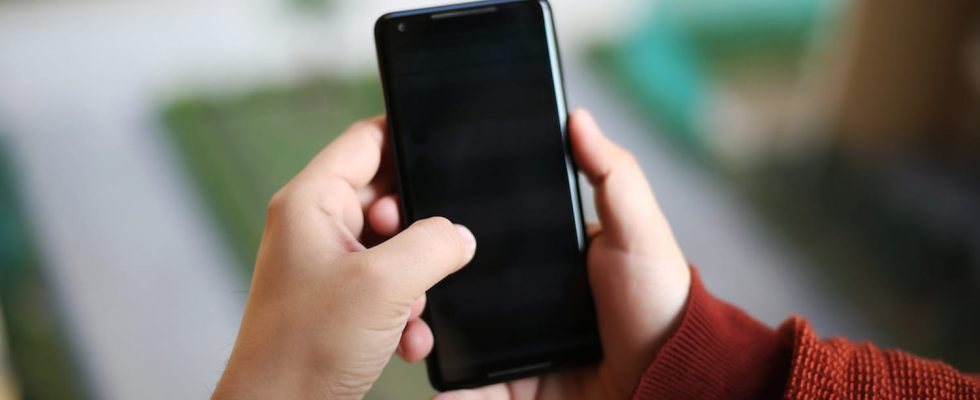Like everyone else, you probably leave your phone on all the time, even at night. However, it should be turned off very regularly as experts advise: it will work much better once it is turned back on!
Many of us let our smartphone regain strength quietly at night. We keep it connected to its charger and in a standby state to recover it in the morning ready for a new day by waking it up with a flick of the screen or its button to consult the notifications that have occurred in the meantime. The days, weeks and months go by without the mobile ever being turned off or even restarted. Because, admit it, you only restart your phone on rare occasions, when a system update requires it or when it starts to stop functioning normally.
And yet, turning off the smartphone or simply restarting it regularly has many advantages for keeping it in good health and would even be beneficial for the security of the data it contains. This is what the NSA (National Security Agency) says. According to her, regularly restarting the smartphone forces malicious applications that could be running in the background without your knowledge to stop. A good way to thwart the action of possible viruses. But beyond this aspect, restarting the mobile also has other virtues.
When you turn off your smartphone, everything stops… or almost depending on the model. Network connections are interrupted, components are no longer powered, applications and the system are no longer running. This pause time leads to several phenomena. First the device’s RAM is emptied of its contents. Everything it contains, such as data needed by the system and applications, is deleted. On the other hand, the cache memory is also purged of all temporary files (necessary for the system and applications). Furthermore, all the apps that were running in the background clear the floor. So when the smartphone turns on again, everything is initialized. The system, completely straightened out with brand new temporary files, is more responsive. It is in fact not disturbed by the numerous applications that you had previously launched and other temporary files downloaded from the Web which then cluttered up the memory. Another benefit is that network connections are improved. The smartphone that accompanies you on all your daily trips hooks up to several relay antennas throughout the day and can sometimes struggle to find the most suitable one. After a restart, it seeks to connect to your operator’s mobile network on the nearest antenna. The connection is even better.
For these reasons, it is recommended to turn off the mobile, let it rest for about five minutes and then turn it back on. An operation to be carried out daily or every two days to keep a smartphone always alert and responsive. The faster restart can also do the trick on a daily basis but is not as effective as a total shutdown. The extinction phase is too short to get rid of all data residue.
Depending on the model, the options vary for turning off or restarting a mobile. On Android smartphones, the rules differ depending on the brand and model. You sometimes have to press and hold the power button, sometimes press it with the volume up button, sometimes find the menu from the shortcuts pane. Then all that remains is to choose between turning off and restarting.
On an iPhone, pressing the power button and volume down button for several seconds brings up the Power off menu on the screen. To restart it, press the volume up button once, the volume down button once and then long press the power button.
